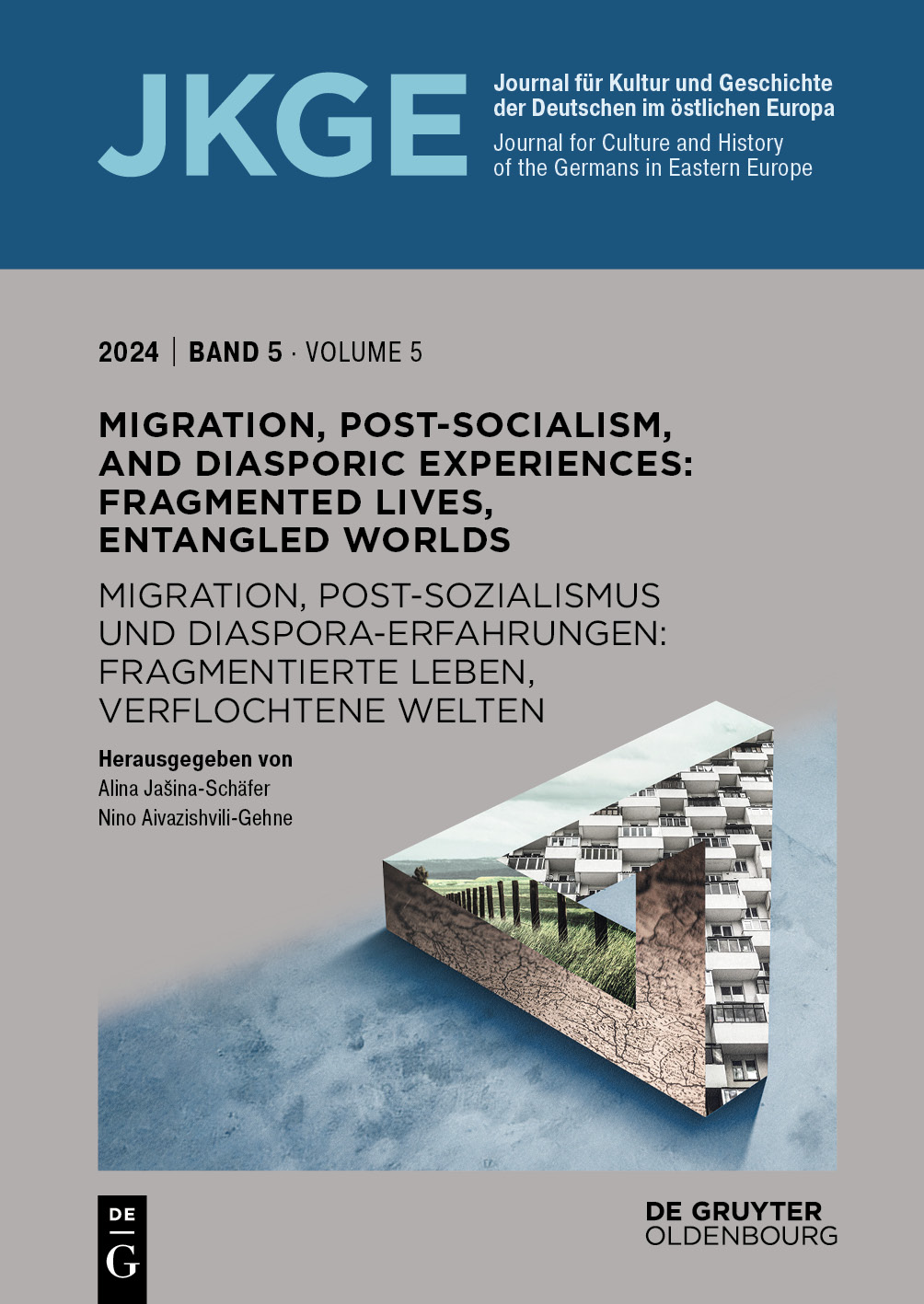The Role of Language in the Identity Practices of Immigrants from the Former Soviet Union in Israel and Germany
The Role of Language in the Identity Practices of Immigrants from the Former Soviet Union in Israel and Germany
Author(s): Cristiana LucchettiSubject(s): Cultural Anthropology / Ethnology, Transformation Period (1990 - 2010), Present Times (2010 - today), Post-Communist Transformation, Migration Studies, Ethnic Minorities Studies, Identity of Collectives
Published by: De Gruyter Oldenbourg
Keywords: language; attitude, identity; migration; post-Soviet;
Summary/Abstract: In the context of transnational migration, the meanings people attach to languages and to their speakers are a lens through which the migration process can be observed, providing original insight into the mechanisms of social identity formation. This paper applies the study of language attitudes to the investigation of social identity formation processes amongst young adult immigrants from the former Soviet Union to Israel and Germany. It regards the immigrants’ social identity as being tightly connected to the networks in which immigrants are situated. Besides the process of social identity formation from below, i. e. modeled by the immigrants themselves, there are often categorisation constraints from above, i. e. imposed on the immigrants by social and national policy. The paper addresses some of the main contrasts emerging between these two opposite dynamics in the context of post-Soviet migration. It relies on data collected during fieldwork in Israel and Germany with Russian-speaking young adult immigrants. Through examples from a mixed-method corpus collected both on-field and through online surveys, it shows that immigrants from the former Soviet Union in Israel and Germany process their migration experience by constructing multiple identities in which their multilingual practices have a valorising function. The analysis points at the need to engage with a critical, more nuanced use of the term ‘post-Soviet’, as it describes a highly dynamic reality.
Journal: Journal für Kultur und Geschichte der Deutschen im östlichen Europa
- Issue Year: 5/2024
- Issue No: 1
- Page Range: 87-106
- Page Count: 20
- Language: English

